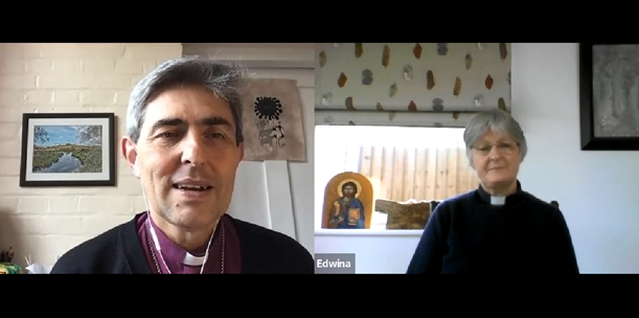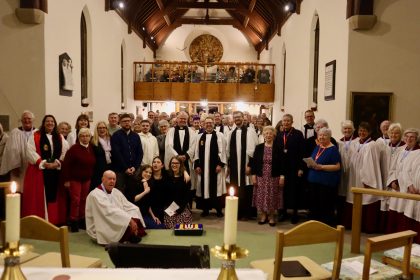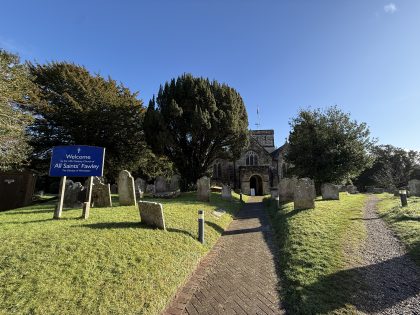In 2019, 195 people in Hampshire and the Isle of Wight were identified as potential victims of trafficking. An increase from the previous year. Earlier this year, Bishop Tim appointed the Reverend Edwina Fennemore as the Diocese of Winchester’s Adviser on Modern Slavery, working in partnership with the Diocese of Portsmouth and the Clewer Initiative. As part of the Hampshire and Isle of Wight Modern Slavery Partnership, her role involves supporting the local Church in its efforts to help tackle human trafficking and exploitation in the region.
Bishop Tim spoke with Edwina about the perceptions of modern slavery, the work of the Clewer Initiative, local church action against modern slavery and the scale of the issue in the wider region.
Bishop Tim highlighted the recent changes that have taken place in UK law to help recognise and prevent modern slavery. Edwina explained how slavery is perceived and understood today: “So many people still say that slavery is a historical thing and that it isn’t present now. What we have learned over the course of decades is that slavery has been present ever since and has taken on different forms…This helps us, in today’s society, to understand what the term ‘slavery’ means: Any man, woman or child who is still open to exploiters, through coercion and control to be used a commodity for financial gain.”
Edwina described her hopes for how parishes and individuals in the Winchester Diocese can engage with the Clewer initiative: “We have a responsibility as individuals, as citizens, and as people of faith. We have a role in our own communities, in our local church, partner agencies and local charities. I’m very hopeful that every single parish will incorporate the Clewer prayer into their cycle of prayer….The Clewer initiative also has a number of courses: a Hidden Voices course and a County Lines course to help us engage better with the complexities of these issues. On an individual basis, we can consider the choices we make as consumers too by understanding the supply chains of the clothes and food we buy.”
Edwina also spoke about the hidden nature of modern slavery in the local region: “modern slavery is a local and global thing. In Hampshire, Southampton has shown increasing signs of labour and sexual exploitation…Where there is a place that the crime can be hidden then the exploiters will work. You can be hidden in a city or hidden in a remote rural place.”
Bishop Tim asked about the action faith communities can take to help tackle modern slavery and provide safe places for victims and survivors. Edwina highlighted the importance of working in partnership with specialist local organisations and those who understand the complexities of modern slavery: “The Church can show itself in the best light by working alongside others to identify gaps where church communities can contribute…We often have the skills and resources within our own communities but it just a case of bringing people together”.
Bishop Tim suggested that there is still a tendency to separate the proclamation of the gospel and the responsibility for society and others and how this is reflected in responses to modern slavery. Edwina shared her thoughts on this and pointed to a report by the Clewer initiative – A Theology of Modern Slavery: “Jesus often paused and reflected on those who are most in need. The text enables us to reflect on our own faith journey and how we communicate what Jesus did in reflecting his love for all of us”. Bishop Tim invited Edwina to close by saying the Clewer prayer.





